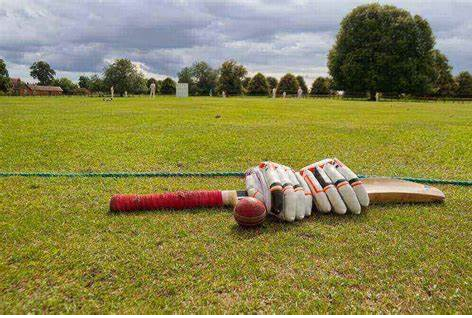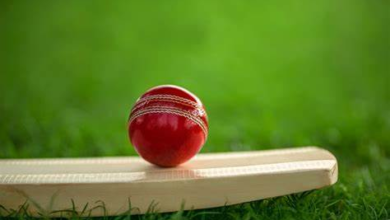Waste Management at T20 World Cup Matches: Minimizing Environmental Impact

The T20 World Cup pulsates with energy, bringing together world-class cricket and passionate fans. However, the mega-event generates a significant amount of waste, posing a substantial environmental challenge. From mountains of plastic bottles to overflowing food packaging, managing waste effectively is crucial for ensuring the T20 World Cup’s sustainability.
The topic of waste management at T20 World Cup matches is a critical one, and your introduction effectively sets the stage for a detailed analysis.
Is there anything specific you’d like to explore further within the proposed multi-pronged approach in the t20 exchange betting app? We could delve deeper into:
- Specific strategies for promoting reusable water bottles and minimizing paper waste.
- The logistics and feasibility of on-site composting at T20 World Cup venues.
- Innovative public education campaigns to engage fans in responsible waste disposal.
Waste Generation at T20 World Cup Matches
The sheer scale of the T20 World Cup necessitates massive infrastructure and large crowds, leading to significant waste generation:
- Plastic Waste: The most prominent culprit is plastic. From single-use water bottles and food packaging to cups, straws, and cutlery, plastic waste dominates the post-match cleanup.
- Food Waste: Uneaten food, discarded snacks, and leftover beverages contribute significantly to the waste stream.
- Paper Waste: Tickets, flyers, promotional materials, and paper cups add to the overall waste volume.
- Other Waste: Sanitary waste, glass bottles (if allowed), and miscellaneous items also contribute to the waste management burden.
The Environmental Impact of Waste
Improper waste management at T20 World Cup matches has severe environmental consequences. Indibet app always supports proper waste management.
- Landfill Overload: Plastic waste, especially non-biodegradable items, ends up in landfills, leading to overflowing landfills and land degradation.
- Ocean Pollution: Plastic waste that escapes collection systems can find its way into waterways and ultimately pollute the oceans, harming marine life and ecosystems.
- Public Health Risks: Improper waste disposal can attract pests and create unsanitary conditions, posing public health risks.
Strategies for Sustainable Waste Management at T20 World Cup Venues
To ensure the T20 World Cup becomes a more environmentally friendly event, a comprehensive waste management strategy is essential. Here’s a breakdown of key areas for improvement:
1. Waste Reduction at the Source:
- Promote Reusable Water Bottles: Discourage single-use plastic bottles by incentivizing spectators to bring their reusable bottles. Partner with sponsors to offer branded reusable bottles as merchandise.
- Compostable Packaging: Encourage vendors and concessionaires to use compostable or biodegradable packaging for food items. This reduces plastic waste and creates nutrient-rich compost for landscaping needs.
- Minimize Paper Use: Promote e-ticketing and digital marketing materials to minimize paper waste. Explore the use of recycled paper for unavoidable printing needs.
- Food Portion Control: Implement measures to reduce food waste, such as offering smaller portion sizes or allowing spectators to customize their food orders.
2. Effective Waste Segregation and Collection:
- Multiplayer bins: Set up a system with clearly labeled bins for different waste categories, such as plastic, paper, compostable waste, and landfill waste. This enables proper segregation from the outset.
- Strategic Bin Placement: Place bins conveniently throughout the stadium, ensuring easy access for spectators to dispose of waste responsibly. Consider color-coding the bins for better visual identification.
- Dedicated Waste Management Staff: Train and deploy staff dedicated to waste collection and ensuring proper segregation is maintained throughout the event.
3. Efficient Recycling and Composting:
- Partnership with Waste Management Companies: Collaborate with waste management companies that have established recycling and composting infrastructure. This ensures proper processing of collected waste streams.
- On-site Composting: Explore the feasibility of setting up on-site composting facilities for food waste, especially if the stadium has sufficient space and resources.
- Transparency and Awareness: Inform spectators about the waste management processes in place. Signage explaining what waste goes in which bin and the destination of recycled materials can foster responsible waste disposal habits.
4. Public Education and Awareness
- Pre-match Campaigns: Launch awareness campaigns before the T20 World Cup season highlighting the importance of waste management and encouraging responsible fan behavior. Utilize social media, television commercials, and stadium announcements to spread the message.
- In-stadium Engagement: Display informative messages on stadium screens during breaks and encourage announcements reminding spectators about proper waste disposal.
- Fan Incentives: Explore innovative ways to incentivize responsible waste disposal. Consider reward programs for using reusable bottles or participating in waste-sorting activities.
With this, if you are interested in T20 Betting, visit Indibet.
Challenges and Opportunities
Implementing these strategies requires overcoming certain challenges:
- Initial Investment: Setting up a robust waste management system, including purchasing new bins, signage, and potentially composting facilities, may require an initial investment.
- Fan Behavior Change: Encouraging spectators to adopt new habits like using reusable bottles or sorting waste effectively might require sustained education efforts.
- Collaboration with Stakeholders: Effective waste management necessitates collaboration between stadium management, waste management companies, vendors, and franchise teams.



